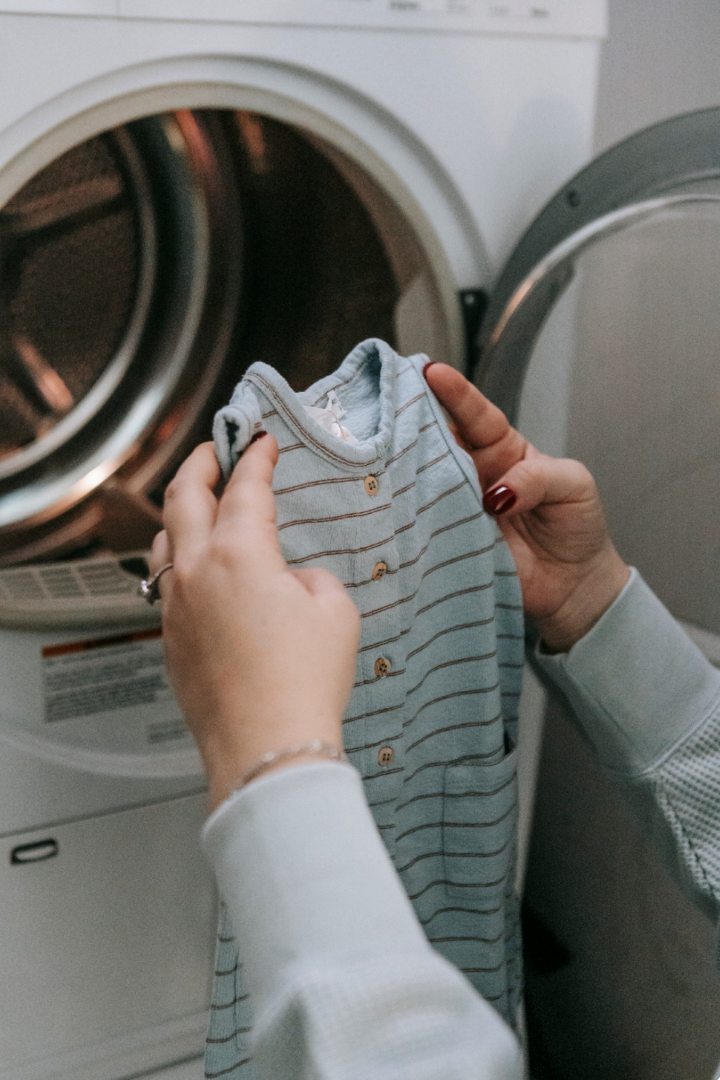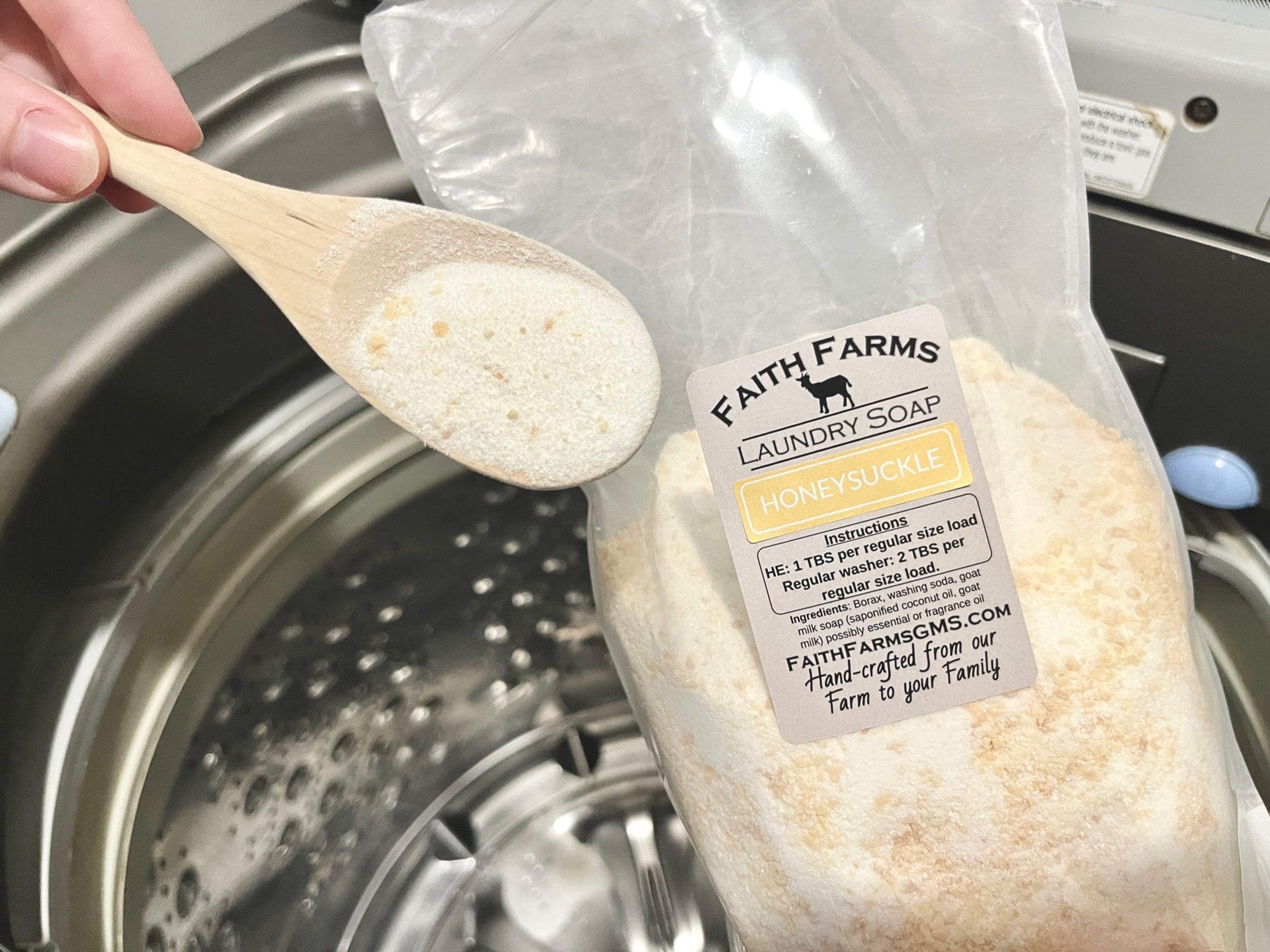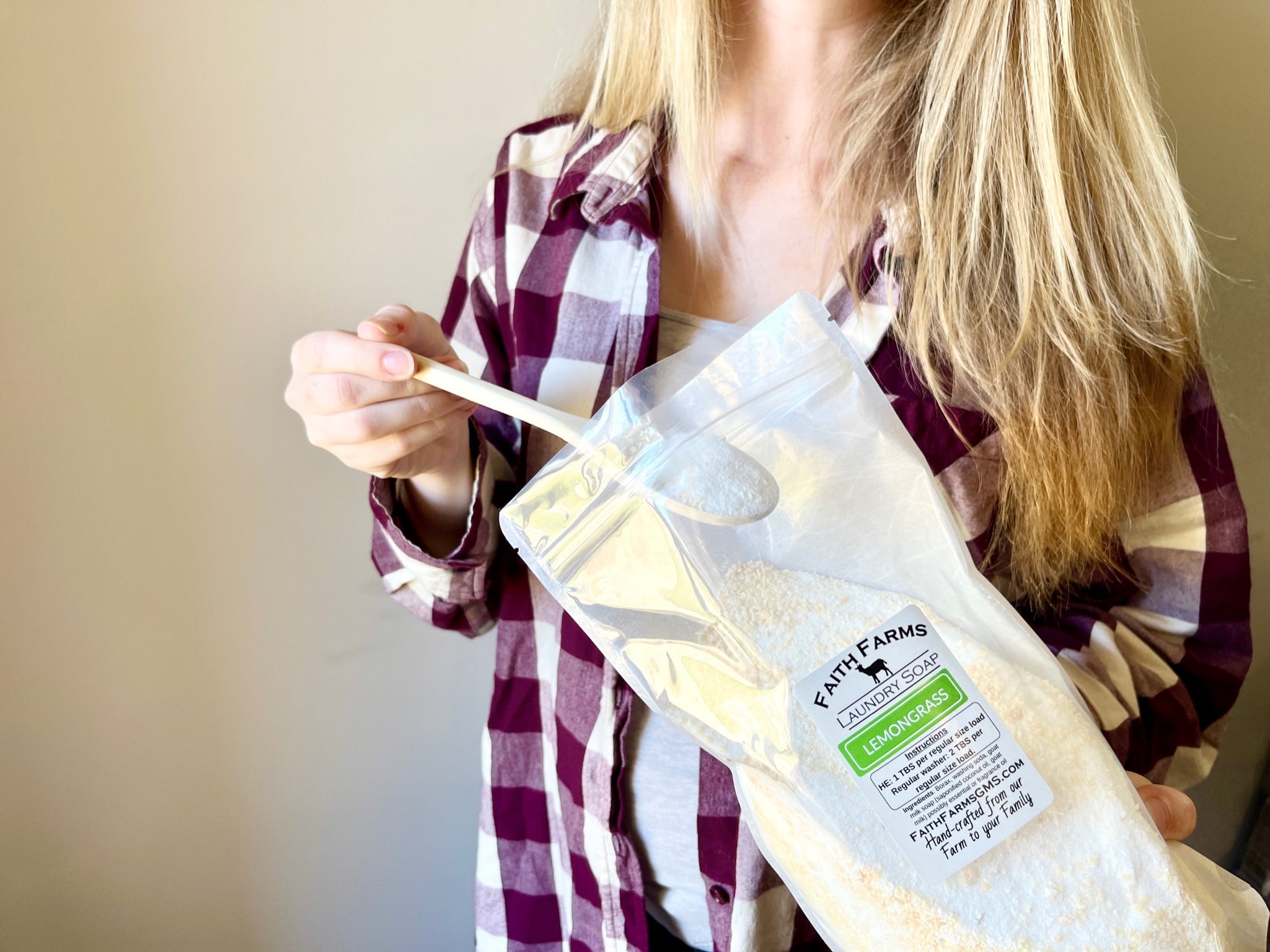This post will tell you everything you need to know about the toxins in laundry detergent and how to avoid them.
First of all, let's start by saying that not all laundry detergents are toxic. There are brands who intentionally formulate safe laundry detergent that will not harm your skin or cause cancer or other health issues.
However, as cancer, disease, skin sensitivities, fertility problems, and so many more health issues are on the rise in our culture, people are finally asking questions like "what chemicals are in laundry detergent?" And, "how do I know which laundry detergents are safe?"
Here at Faith Farms, we've become experts on the topic of toxins. So much that our entire company is revolved around formulating healthy, safe, toxin-free products for families to enjoy. So, in this post, we're going to answer your questions, as well as explain the main toxins and carcinogens in laundry detergent, and the harmful effects of laundry detergents on the body.
Be cautioned as you learn more about the harmful toxins in laundry detergent.

What You Need to Know About Toxins in Laundry Detergent
Are there harmful chemicals in laundry detergent?
The short answer... YES. Below, we've listed the toxins, carcinogens, and endocrine disruptors in laundry detergent, as well as the harmful effects of detergents on humans (well, most store-bought detergents, at least. *Insert shameless plug for our completely natural non-toxic laundry detergent.* 😃) First, let's break down exactly what toxins, carcinogens, and endocrine disruptors actually are and the difference between them:- Toxins are substances that cause adverse health effects in one way or another. This can range from skin issues to stomach problems, diseases, or even death. All carcinogens and endocrine disruptors are toxins, but not all toxins are carcinogens or endocrine disruptors. Make sense?
- Carcinogens are substances known to cause cancer.
- Endocrine disruptors are substances that disrupt the human endocrine system, which is the system of glands and organs that uses hormones to control your metabolism, reproduction, energy levels, mood, growth and development, and your body's response to stress and injury.
CLICK TO TRY FAITH FARMS NON TOXIC LAUNDRY SOAP.
Is laundry detergent toxic to skin?
Many store-bought laundry detergents contain toxins that are known to cause skin sensitization and skin irritation. However, there absolutely are non toxic laundry detergent brands, such as Faith Farms Laundry Soap that do not use harsh chemicals in their product. In the next section, we're going to explain to you which ingredients to be on the lookout for.
RELATED POST: Is Natural Laundry Detergent Better? Here's the Truth
Harmful Laundry Detergent Chemicals List
View this post on Instagram
"Many synthetic chemicals in fragrances are petroleum-based and can be harmful to human health. Chemicals found in fragrances include phthalates, which are endocrine disruptors, and carcinogens benzophenone and styrene. In addition, some children and adults have allergic reactions to fragrance chemicals."
"Phthalates, as endocrine-disrupting chemicals and SVOCs, are detrimental to the reproductive, neurological, and developmental systems of human from multiple exposure pathways. Children are at a higher level of exposure and more vulnerable to phthalates."

CLICK TO TRY FAITH FARMS NON TOXIC LAUNDRY SOAP.
7. Preservatives Chemicals such as methylisothiazolinone (MIT) and benzisothiazolinone (BIT) may be used as preservatives to prevent the growth of bacteria and mold in the detergent. MIT, in particular, has been associated with skin issues, allergies, and more. You can read more about MIT and its' harmful effects.The EPA website states this about 1,4 dioxane:
"1,4-Dioxane is used as a solvent. Acute (short-term) inhalation exposure to high levels of 1,4-dioxane has caused vertigo, drowsiness, headache, anorexia and irritation of the eyes, nose, throat, and lungs in humans. It may also irritate the skin. Damage to the liver and kidneys has been observed in rats chronically (long-term) exposed in their drinking water... Tumors have been observed in orally exposed animals. EPA has classified 1,4-dioxane as a Group B2, probable human carcinogen."
RELATED POSTS: Beginner's Guide: Switching to Natural Products 5-Step Guide to Natural Living for Beginners

